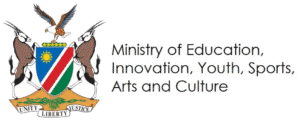Inventive mathematics teaching practices using learner-centred to teach mathematical operations of fractions in the Zambezi Region
Keywords:
learner-centred, innovative, habits of mind, basic operationsAbstract
Various factors are associated with high failure rate witnessed in mathematics in Namibian schools. Some of these factors which researchers, policy makers, teachers and learners suggest are; (a) Teaching strategies; (b) Content knowledge and understanding; (c) Motivation and interest; (d) Laboratory usage; and (e) Syllabus non-completion and many more which might be resource or system related. To address some of these factors, innovative mathematics practices are encouraged in the teaching of mathematics in Namibian schools. These innovations are manifested in the use of learner-centred approach in mathematics teachers’ practices. To gain insight on strategies teachers use to teach mathematical operations; addition, subtraction, multiplication and division of fractions, and the content knowledge teachers pose to teach operations of fractions, innovative mathematics teaching practices using learner-centred methods were investigated. To answer the research question posed, in order to gain insight into inventive mathematics teaching practices using learner-centred to teach mathematical operations of fraction in the Zambezi Region, this qualitative study used document analysis, interviews and observations. To support the data yielded, which can be recommended to others, the study looked into fractions and how they are taught and possible ways to transform the current practice. The constructs learner-centred, traditional and modern methods of teaching fractions, cognitive and social constructivist as theoretical frameworks were discussed. Some of the findings were; teachers lacked fraction content knowledge and they did not engage habits of mind to ensure that their approaches adopted learner-centred teaching.
Downloads
Published
How to Cite
Issue
Section
License
Copyright (c) 2019 MoEAC, National Institute for Educational Development (NIED)

This work is licensed under a Creative Commons Attribution 4.0 International License.






